Is Administrative Law Unlawful?
PHILIP HAMBURGER
The University of Chicago Press
Chicago and London
Philip Hamburger is the Maurice and Hilda Friedman Professor of Law at Columbia Law School. He is the author of Law and Judicial Duty and Separation of Church and State.
The University of Chicago Press, Chicago 60637
The University of Chicago Press, Ltd., London
2014 by The University of Chicago
All rights reserved. Published 2014.
Printed in the United States of America
23 22 21 20 19 18 17 16 15 14 1 2 3 4 5
ISBN-13: 978-0-226-11659-4 (cloth)
ISBN-13: 978-0-226-11645-7 (e-book)
DOI: 10.7208/chicago/9780226116457.001.0001
Library of Congress Cataloging-in-Publication Data
Hamburger, Philip, 1957 author.
Is administrative law unlawful? / Philip Hamburger.
pages ; cm
Includes bibliographical references and index.
ISBN 978-0-226-11659-4 (cloth : alkaline paper) ISBN 978-0-226-11645-7 (e-book)
1. Administrative lawHistory. 2. Administrative lawPhilosophy. 3. Administrative lawUnited States. I. Title.
K3400.H253 2014
342'.06dc23
2013040559
 This paper meets the requirements of ANSI/NISO Z39.48-1992 (Permanence of Paper).
This paper meets the requirements of ANSI/NISO Z39.48-1992 (Permanence of Paper).
For Cnaan
Upon my word, if I did not know I was awake, I should be apt to think I had been in a dream, and that some fairy midnight scene had carried my imagination back an hundred and thirty or forty years, in an illusory audience of some of the speeches of a James, or Charles, or their Lord Chancellors and Lord Keepers; for with no other standard of the prerogative, that I know of, will such notions square; and these they will fit.
A Speech Against the Suspending and Dispensing Prerogative (1767)
[D]isregarding the lessons of history there has been a disposition to revert to the methods of tyranny in order to meet the problems of democracy. Intent on some immediate exigency, and with slight consideration of larger issues, we create autocratic power.... [A]nd we should know by this time that arbitrariness is quite as likely to proceed from an unrestrained administrative officer of the republic reigning by the grace of an indefinite statute as by the personal government of a despotic king.
CHARLES EVANS HUGHES, Some Observations on Legal Education and Democratic Progress (1920)
[T]he whole genius of administrative action through commissions endangers the doctrine of the supremacy of law. Not the least task of the common-law lawyers of the future will be to impose a legal yoke on these commissions, as Coke and his fellows did upon the organs of executive justice in Tudor and Stuart England.
ROSCOE POUND, The Law School and the Common Law (1920)
[T]he question of whether or not the king can issue ordinances parallels our modern question as to whether or not an executive body or officer can establish regulations; and the arguments used pro and con have followed much the same lines.
JOHN DICKINSON, Administrative Justice and the Supremacy of the Law in the United States (1927)
CONTENTS
INTRODUCTION
Is administrative law unlawful? The question is old and may seem well settled. The problem, however, has never gone away, and with the expansion of the administrative state, it has become all the more important.
The federal government traditionally bound the people only through acts of Congress and judgments of the courts. In other words, to constrain liberty, the executive ordinarily had to rely on the other branches of governmentit had to persuade the representatives of the people to enact a rule, and it had to persuade independent judges and juries to apply the rule.
Nowadays, however, the executive acts against Americans through its own legislation and adjudication. This administrative action, whether legislative or judicial, is known as administrative law, and the executive relies on it to constrain Americans in all aspects of their lives, political, economic, social, and personal.
Administrative law thereby has transformed American government and society. Although this mode of power is unrecognized by the Constitution, it has become the governments primary mode of controlling Americans, and it increasingly imposes profound restrictions on their liberty. It therefore is time to reconsider the lawfulness of administrative law.
Off-Road Driving
The problem can be put in terms of off-road driving. Although the Constitution lays out lawful avenues for issuing edicts that constrain the public, the government often takes other paths.
The Constitution generally establishes three avenues of power. It authorizes the government to issue binding edicts through legislative and judicial acts and to exercise force through executive acts. Nonetheless, like so many who enjoy the strength of their vehicles, the government frequently prefers to drive off-road, pursuing binding power down paths of its own choosing.
In challenging the off-road driving, this book does not dispute the direction of substantive policy. For example, when this book objects to off-road exercises of binding power, it does not ordinarily question the policies thereby pursued by the government. Nor does it question the policies pursued by the government in its exercise of nonbinding power, such as its distribution of welfare, social security, or other benefits.
The problem examined here is thus not where the government is heading, but how it drives. To leave the roads laid out by the Constitution can be exhilarating, at least for those in the drivers seat. All the same, it is unlawful and dangerous.
What Is Administrative Law?
It already should be evident that, in questioning administrative law, this book does not question all executive acts. In fact, many executive acts are entirely lawful. It therefore is important to go into more detail about what this book criticizes as unlawful and what it does not.
The executive often issues binding directiveswhether rules, interpretations, adjudications, orders, or warrants. These executive edicts purport to bind not merely executive officers, but members of the public. To be precise, they purport to bind subjects, meaning the persons subject to the United States and its law. The executives edicts, moreover, purport to bind subjects not merely in the sense of reaching a settled decision about them, but in the deeper sense of legally obliging, constraining, or interfering with them. This executive power to issue edicts that bind, or confine, subjects has long been recognized as the central feature of administrative law, and it is what this book questions.
What exactly were the binding acts that the executive traditionally could not adopt? The secretary of the treasury, for example, could authorize the distribution of government largess, and could make regulations that instructed treasury officers, but he could not promulgate regulations altering tax rates. Although the Post Office could refuse a request to mail a letter, it could not issue regulations requiring subjects to avoid private carriers; and although the Interior Department could deny access to confidential government information, it could not issue an order compelling a business to supply information.
Of course, the executive decisions granting or denying government money, services, information, and other benefits were very important. Yet they could be executive decisions precisely because they did not bind Americans.
Nowadays, however, the executive enjoys binding legislative and judicial power. First, its agencies make legislative rules dictating what Americans can grow, manufacture, transport, smoke, eat, and drink. Second, the agencies make binding adjudicationsinitially demanding information about violations of the rules, and then reaching conclusions about guilt and imposing fines. Only then, third, does the executive exercise its own powerthat of coercionto enforce its legislation and adjudication.
Next page


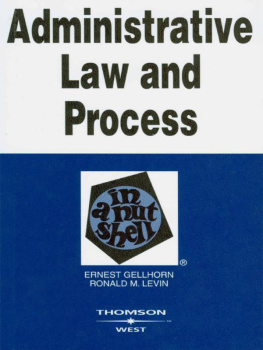
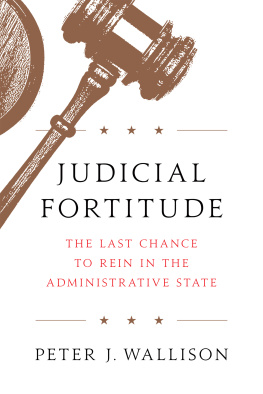

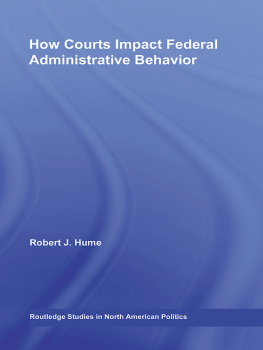
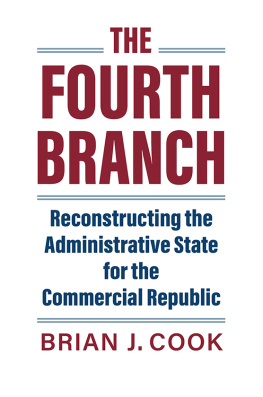
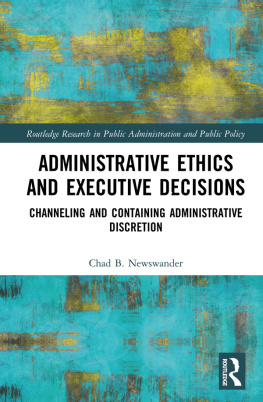
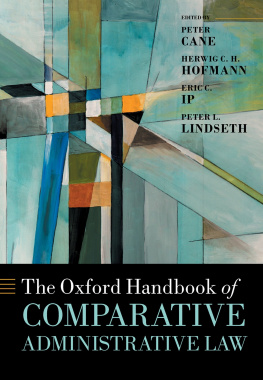
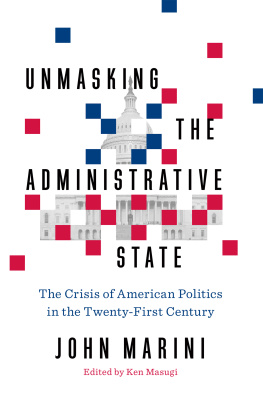
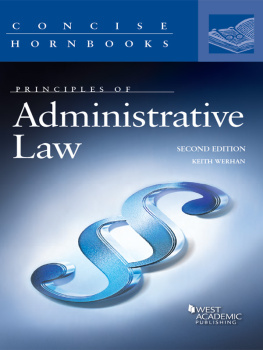
 This paper meets the requirements of ANSI/NISO Z39.48-1992 (Permanence of Paper).
This paper meets the requirements of ANSI/NISO Z39.48-1992 (Permanence of Paper).